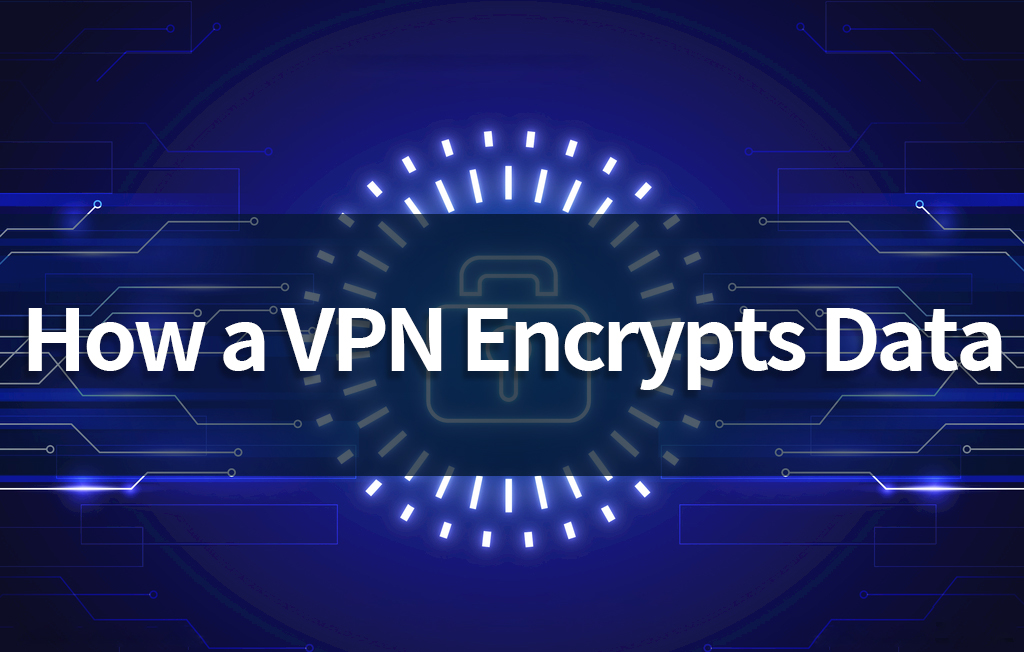
How 4G Industrial Router VPN Encrypts Data
VPN encryption is crucial for 4G industrial routers as it ensures the security and privacy of data transmitted over wireless networks in industrial environments. By encrypting data, VPNs prevent unauthorized access and potential cyberattacks, protecting sensitive industrial control information and operational data. Additionally, VPN encryption ensures data integrity, preventing tampering during transmission, thereby enhancing the reliability and stability of the entire industrial system. So, how does a 4G industrial router VPN encrypt data?

Encryption Protocols
VPNs use various encryption protocols to secure data transmission. These protocols define how data is encrypted and decrypted to ensure confidentiality and integrity. The most common VPN encryption protocols include:
OpenVPN: An open-source protocol known for its flexibility and strong security features. It uses SSL/TLS for key exchange and supports multiple encryption algorithms.
IPsec (Internet Protocol Security): Often used with L2TP (Layer 2 Tunneling Protocol), IPsec provides strong security by authenticating and encrypting each IP packet in a communication session.
IKEv2/IPsec: A modern protocol known for its high speed and stability. It is particularly suitable for mobile devices due to its ability to quickly reconnect after temporary disconnections.
WireGuard: An emerging protocol praised for its simplicity, speed, and security. It uses state-of-the-art cryptography to provide a secure connection.
Symmetric and Asymmetric Encryption
VPNs use both symmetric and asymmetric encryption to protect data.
Symmetric Encryption
Symmetric encryption uses the same key for both encryption and decryption. This method is fast and efficient, making it ideal for encrypting large amounts of data. Common symmetric encryption algorithms used in VPNs include AES (Advanced Encryption Standard), known for its high level of security.
Asymmetric Encryption
Asymmetric encryption uses a pair of keys: a public key for encryption and a private key for decryption. This method is more secure than symmetric encryption because the private key does not need to be shared. However, it is computationally more intensive. Asymmetric encryption is typically used during the initial handshake process to securely exchange symmetric keys.
Authentication
Authentication ensures that the transmitted data comes from legitimate sources. VPNs use various methods to authenticate users and devices:
Username/Password: A simple yet effective method often used in conjunction with other authentication mechanisms.
Pre-shared Keys (PSK): A shared secret known only to the communicating parties.
Digital Certificates: Issued by trusted Certificate Authorities (CAs), these certificates verify the identities of the parties involved.
Data Integrity Check
Data integrity checks ensure that data has not been altered during transmission. VPNs use hash functions like SHA (Secure Hash Algorithm) to create a unique hash value for each data packet. When the packet reaches its destination, the hash value is recalculated and compared with the original to verify that the data has not been tampered with.
Dynamic Key Exchange
Dynamic key exchange is crucial for maintaining a secure VPN connection. It involves securely exchanging keys between parties without exposing them to potential attackers. The most common method used in VPNs is the Diffie-Hellman key exchange algorithm, which allows two parties to generate a shared secret over an unsecured channel.
Perfect Forward Secrecy (PFS)
Many modern VPNs implement Perfect Forward Secrecy (PFS) as part of their dynamic key exchange process. PFS ensures that even if one session’s keys are compromised, past sessions remain secure because new keys are generated for each session.
Conclusion
VPNs are powerful tools that protect user privacy through complex technologies. In 4G industrial routers, VPNs provide comprehensive security for online communications by employing robust encryption protocols, leveraging symmetric and asymmetric encryption, ensuring authentication, performing data integrity checks, and using dynamic key exchange methods like PFS. Understanding these mechanisms can help users make informed decisions when choosing online privacy solutions.